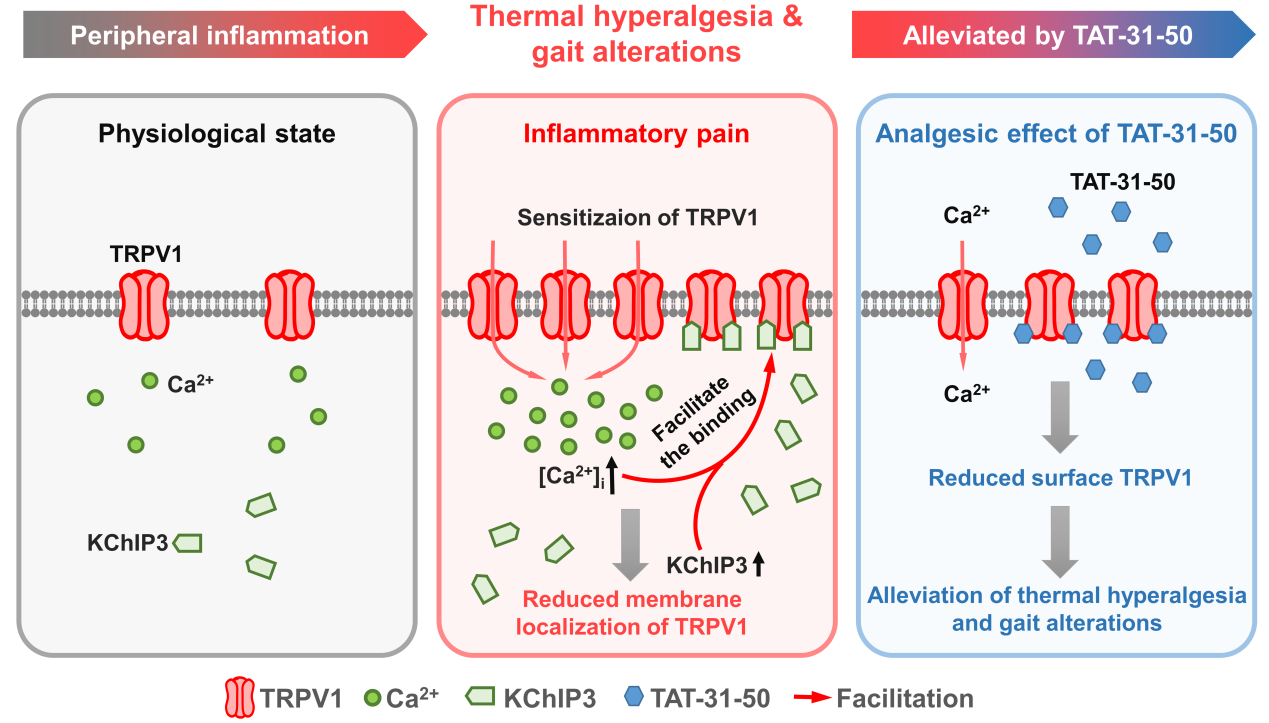Journal of Neuroscience Publishes PUHSC study that Revealed TRPV1 as New Interacting Protein of KChIP3

Potassium channel interacting protein 3 (KChIP3), also known as downstream regulatory element antagonist modulator (DREAM) and calsenilin, is a multi-functional calcium sensor highly expressed in the nervous system. A new study by a group led by Prof Zhang Ying and Prof Wang Yun of Peking University Health Science Center (PUHSC) looked into the role of peripheral KChIP3 in pain and indicated transient receptor potential vanilloid 1 (TRPV1) as a new interacting protein of KChIP3. Inhibition of TRPV1, as the study suggested, turned out to be a mechanism behind the peripheral analgesic function of KChIP3. The study also provided a potential analgesic agent, TAT-31-50, for the treatment of inflammatory pain. The study was published on The Journal of Neuroscience [2018 Feb 14; 38 (7): 1756-1773].
Earlier in 2010, this research group reported on KChIP3 regulating N-methyl-D-aspartate (NMDA) receptors, which was also published on The Journal of Neuroscience [2010 Jun 2; 30 (22): 7575-86].
Written by: Fan Xiaofei
Edited by: Liu Xin
Source: School of Basic Medical Sciences


